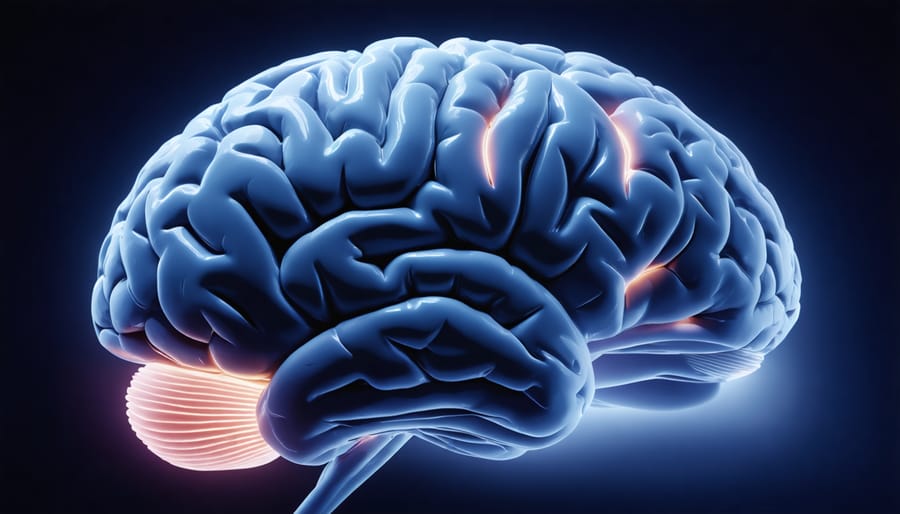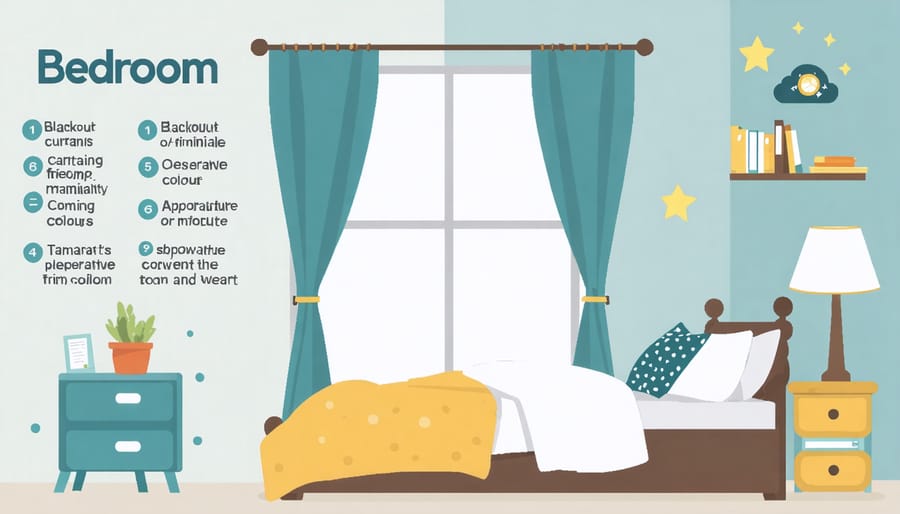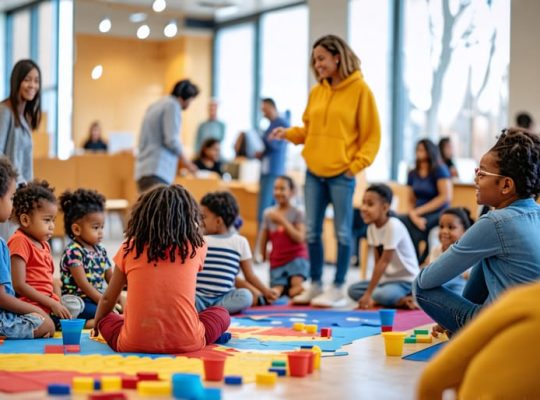Every night as your child sleeps, their brain undertakes a remarkable process of memory consolidation that shapes their learning and development. Far beyond simple rest, sleep serves as a master architect of memory, actively processing the day’s experiences and transforming them into lasting knowledge. Research shows that sleep’s impact on mental health and memory is particularly crucial during childhood, when the brain is rapidly developing and forming millions of new neural connections.
Think of sleep as your child’s internal filing system – during deep sleep, the brain sorts through information learned during the day, strengthening important memories while pruning away less essential details. This process is vital for both academic learning and emotional memory, helping children not only remember facts and figures but also process social experiences and regulate their emotions more effectively.
Understanding this connection between sleep and memory gives us powerful insights into supporting our children’s cognitive development and academic success through healthy sleep habits.
The Science Behind Sleep and Memory

Memory Storage During Different Sleep Stages
During sleep, our brains work like a careful librarian, organizing and storing the day’s memories in different ways. The sleep-mental health connection is particularly strong during specific sleep stages. In the first part of the night, during deep sleep (also called slow-wave sleep), the brain processes fact-based memories like multiplication tables or historical dates. This is why a good night’s sleep after studying often helps children remember their lessons better.
During REM sleep, which happens more in the early morning hours, the brain works on emotional memories and creative problem-solving. Think of it as your child’s brain connecting the dots between different experiences and creating new understanding. This is when stories, music lessons, and social interactions from the day are processed and stored.
Light sleep stages, which occur throughout the night, help with motor memory – things like riding a bike or learning dance moves. Each sleep cycle builds upon the previous one, working together like a well-orchestrated symphony to strengthen your child’s memories and learning abilities.
The Brain’s Nighttime Clean-up Crew
During sleep, our brains undergo a remarkable cleaning process that’s similar to a nighttime cleaning crew at work. Just like how custodians sweep the halls after everyone has gone home, our brains have their own cleanup system called the glymphatic system, which becomes incredibly active while we rest.
Think of your child’s brain as a busy classroom at the end of the day. Throughout their active hours, their brain cells produce waste products – like scattered papers and art supplies after a creative session. During sleep, the spaces between brain cells actually expand, allowing for a special fluid to flow through and wash away these waste products more efficiently.
This cleanup process is crucial because it removes harmful proteins that can interfere with memory formation and brain function. It’s also when the brain reorganizes neural connections, strengthening important memories while pruning away less necessary ones. Dr. Sarah Johnson, a pediatric neurologist, explains it this way: “Sleep gives the brain a chance to sort through the day’s experiences, filing away important information and clearing out the clutter, just like organizing a messy desk to start fresh the next day.”
How Sleep Impacts Different Types of Memory
Learning New Skills
Have you ever watched your child learn to ride a bike or master a new dance move? Sleep plays a crucial role in these physical learning processes. During sleep, the brain strengthens the neural pathways associated with newly learned motor skills, making movements more automatic and refined.
Dr. Sarah Chen, a pediatric sleep specialist, explains it beautifully: “Think of sleep as your child’s personal practice session. While they rest, their brain replays the day’s physical activities, helping to cement these new skills into long-term memory.”
Research shows that children who get adequate sleep after learning a new physical skill perform it better the next day compared to those who don’t. This is particularly evident in activities like sports, musical instruments, or even handwriting. For instance, studies of young piano students found that they played more accurately after a good night’s sleep, even without additional practice.
This process happens during specific sleep stages, particularly during slow-wave sleep and REM sleep. During these phases, the brain consolidates procedural memories – the “how-to” knowledge that helps us perform tasks automatically.
For parents, this means ensuring children get enough quality sleep after learning new skills is just as important as the practice itself. Whether it’s swimming lessons, ballet class, or learning to tie shoelaces, proper sleep helps transform wobbly attempts into confident abilities.

Remembering Facts and Experiences
Sleep plays a vital role in how we store and maintain our memories of facts and experiences, also known as declarative memory. Think of your child’s brain as a filing cabinet that organizes daily experiences and learned information during sleep. During this nightly process, memories are transferred from short-term storage to long-term storage, much like saving important files to a computer’s hard drive.
Dr. Sarah Martinez, a pediatric sleep specialist, explains, “When children get adequate sleep, their brains effectively process and store information they’ve learned during the day. This includes everything from multiplication tables to memories of a family vacation.”
Research shows that children who get quality sleep are better able to recall information they learned the previous day. For instance, a child who gets a good night’s sleep after studying for a test is more likely to remember the material compared to one who stays up late cramming.
This memory consolidation happens primarily during deep sleep, when the brain replays and strengthens neural connections made during the day. As one parent shared, “After we established a consistent bedtime routine, my daughter not only remembered more from her school lessons but could also recall details from our weekend activities more vividly.”
The process isn’t limited to academic learning – emotional memories and social experiences are also better preserved when children get enough restful sleep. This is further emphasized in our exploration of how diet impacts your child’s mental health.
Sleep Tips for Better Memory

Creating the Perfect Sleep Environment
Creating an optimal sleep environment for your child is essential for supporting their memory development and learning abilities. Start by maintaining a consistent room temperature between 68-72°F (20-22°C), as this range promotes comfortable, uninterrupted sleep.
Darkness plays a crucial role in quality sleep, so consider installing blackout curtains to block out street lights and early morning sun. If your child prefers some light, a dim nightlight with warm, amber tones is a good option, as it won’t interfere with their natural sleep cycle.
Sound management is equally important. While complete silence isn’t necessary, consistent background noise can be beneficial. A white noise machine can help mask disruptive household or outdoor sounds that might disturb your child’s sleep.
Pay attention to your child’s bedding preferences. Some children sleep better with weighted blankets, while others prefer lighter covers. The key is finding what makes your child most comfortable while ensuring their safety.
Keep electronics out of the bedroom, as the blue light from screens can interfere with natural sleep patterns. Instead, create a cozy reading nook with soft lighting for bedtime stories, helping your child wind down naturally before sleep.
Remember that every child is different, so observe what works best for yours and adjust accordingly. Small changes to their sleep environment can make a significant difference in their sleep quality and, consequently, their memory consolidation.
Bedtime Routines That Boost Learning
Creating a consistent bedtime routine can significantly boost your child’s learning and memory consolidation. Dr. Sarah Chen, a pediatric sleep specialist, recommends starting the wind-down process 30-60 minutes before bedtime to prepare the brain for optimal memory processing.
Begin by dimming the lights throughout your home, which signals to your child’s brain that it’s time to relax. Follow this with calm, memory-enhancing activities like reading together or gentle storytelling. These quiet moments not only strengthen emotional bonds but also help cement the day’s learning experiences.
Consider incorporating these memory-boosting elements into your routine:
– Brief review of the day’s positive experiences
– Gentle breathing exercises or child-friendly meditation
– Soft background music or white noise
– A warm bath or shower
– Light stretching or yoga poses
Many parents have found success with “memory boxes” – where children place a small object representing something they learned that day. The next morning, they can recall and discuss the previous day’s experiences, reinforcing both emotional and factual memories.
Remember to maintain consistent bedtimes and wake times, even on weekends. This regularity helps optimize your child’s natural sleep-wake cycle, ensuring the brain has the best possible conditions for processing and storing new information during sleep.
As we’ve explored throughout this article, sleep plays a vital role in your child’s memory development and learning capabilities. The intricate dance between sleep cycles and memory consolidation shapes how children process, store, and recall information from their daily experiences.
Remember that quality sleep isn’t just about getting enough hours – it’s about maintaining consistent sleep patterns that allow for both slow-wave and REM sleep phases. These stages work together to strengthen different types of memories, from facts and figures to physical skills and emotional experiences.
As parents, you have the power to make a significant difference in your child’s cognitive development by prioritizing healthy sleep habits. Start by establishing a regular bedtime routine, creating a sleep-friendly environment, and limiting screen time before bed. These small changes can lead to big improvements in your child’s memory formation and overall learning abilities. It’s also essential to consider holistic strategies, like boosting your child’s mood and mind through exercise.
If you notice your child struggling with sleep or memory issues, don’t hesitate to reach out to healthcare professionals. They can provide personalized guidance and support tailored to your child’s specific needs.
Remember, every child is different, and it may take time to find the right sleep routine that works for your family. Be patient and consistent in your approach. By prioritizing healthy sleep habits today, you’re investing in your child’s cognitive development and setting them up for success in learning and memory formation for years to come.
Your efforts in supporting your child’s sleep needs are invaluable. Quality sleep isn’t just a luxury – it’s a fundamental building block for strong memory development and lifelong learning success.







